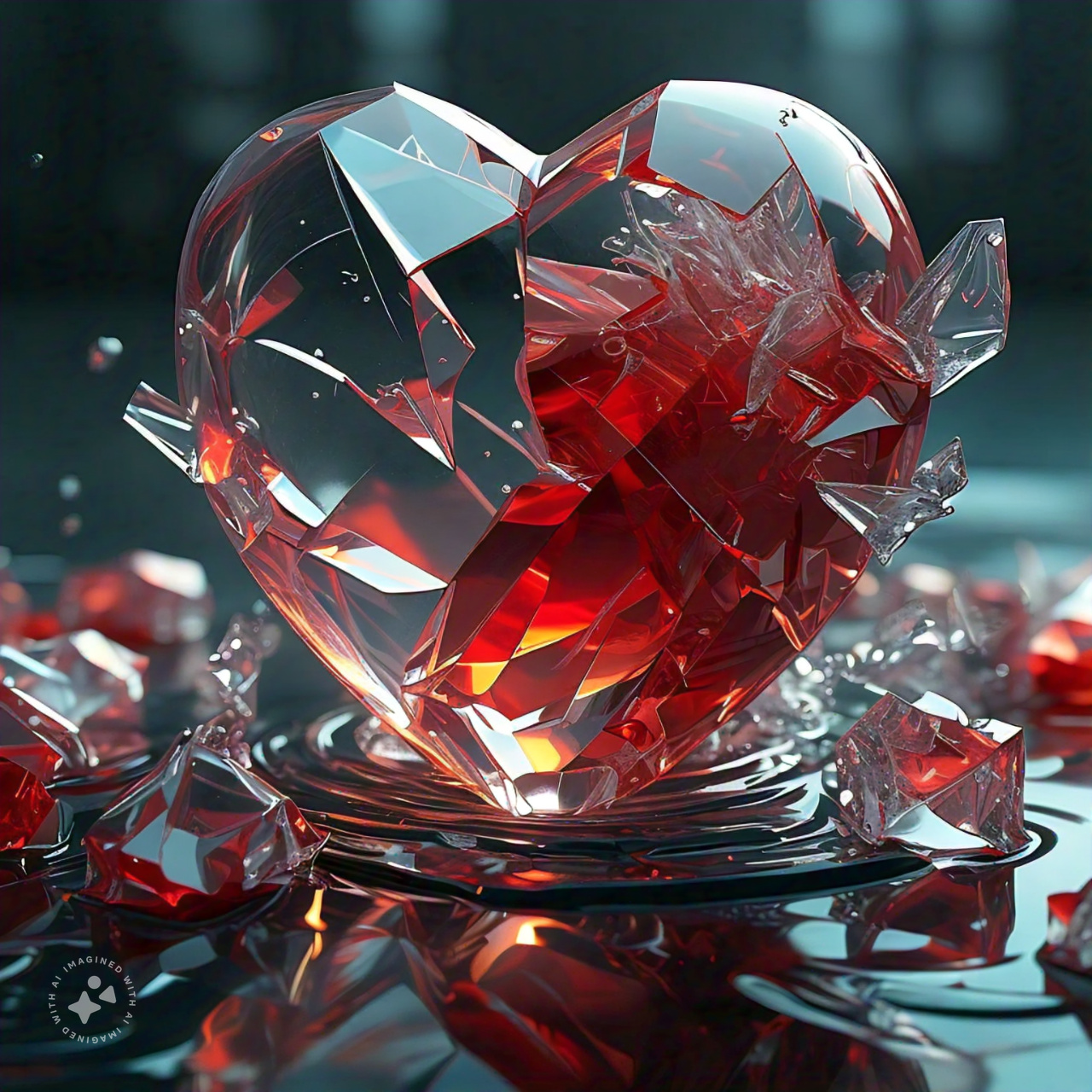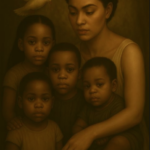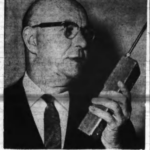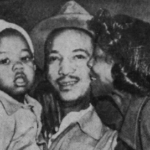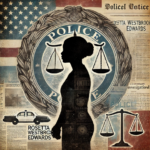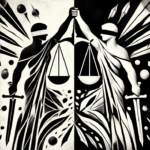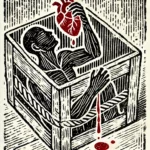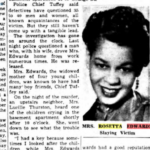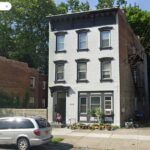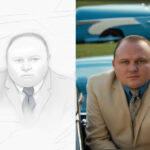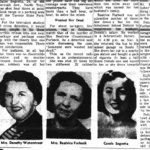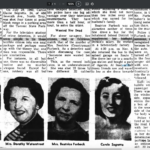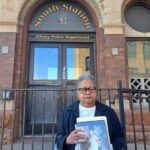In 1957 a sojourner came to Albany, a widow with three children, her eldest daughter left behind in Holyoke with her parents so she could start her life anew. But she was murdered and it barely caused a stir in the media, and her murderer was never brought to justice. Out of this tragedy, a family chasm occurred within her immediate and extended family.
How we got Divided and Fell Silent
This story isn’t about me. How could it be? Aunt Rosetta was murdered 13 years before I was even born. But it did shape my life in ways few people know about and none fully understand. I will reveal that later.
Some will be offended that I even mention myself in the telling of this story. For decades, there are those who, for their own personal reasons, would rather I didn’t-well, I dunno-draw breath. And they will hate-read this while holding their noses, for reasons that, frankly, have no good reason. Maybe it’s that rebellious and free spirit that my mother possessed-my abilities, my truth-who knows? Maybe it’s because I’ve been perceived as a little too queer, a little too white, a little too proud and free. I accept that, and now, I wear it as a badge of honor. To be rejected by small minds is no insult at all.
But the truth calls us to look into dark and uncomfortable places. While I may not always see eye-to-eye with my aunts and uncles, I will always love and respect them, and I’ll always know my place nor will I try to place myself above them in the family order.
And since I am now the one carrying Aunt Rosetta’s story, since I am the one doing this difficult work alongside Aunt DD, and with help from Dot and initial help from another sister-and since I am being shunned by family, this is, in some way, about me too. I will not overplay my part-my trauma pales in comparison to those who actually knew and loved Rosetta, whom we affectionately called “Pie” in person.
Aunt Rosetta got the nickname Pie because her first born daughter Laura couldn’t pronounce Rosetta, so she called her mother “Pie” and the name stuck. 67 years later, I am now the one who will carry this story for a short time. I did not choose this, I decided to accept this story when fate delivered it to me, and I will do everything in my power to honor it.
The Albany Media and the Transient Myth
Aunt Rosetta has long been spoken of by the Albany media and police as if she were some kind of transient. But she wasn’t. She was a widow, and her husband had passed away just six months before her death. She was a mother trying to raise her children, working the graveyard shift as a waitress at the Greyhound bus station to make ends meet. The fact that she brought three of her children with her to Albany as she worked alone speaks volumes about the kind of woman she was. Rosetta wasn’t just a name in the newspaper, not just a “negro” or a “negro woman,” as they so callously wrote.
She wasn’t simply a “pretty woman” either, reduced to her physical appearance. She was a sister, a mother, a daughter, an aunt. She had feelings too. And when she was murdered, the world moved on without solving it, or fully acknowledging her life beyond our family.
The Family Chasm and the Fallout
The chasm in our family started long before my time, and over the years, it grew deeper. Rosetta’s death played a large part in it. It created a ripple effect that left scars most people can’t even begin to imagine.
My sister, Dot, summed it up well when she said, “Grandma and Grandaddy had to take in Aunt Pie’s four children, and they already had 11 of their own. Then, when Uncle Eddie died, they had to give his daughter love and attention. When one of the daughters got educated and moved up on the hill, that side of the family took the spotlight. So, our mother and her children were often treated like an afterthought,” and I added, “less than important.”
Some members of the family began to see themselves as better-more Christian, more respectable, more educated, more “couth.” It became a kind of clique, with some truly believing from their bottoms up that they were anointed. As a result, certain branches of the family looked down on Coreatha’s (my mother) and her children. They could never see value in us, and I believe that’s part of why some family members have actively worked against this project.
When one of Coreatha’s children vowed to look into Rosetta’s death, it was seen as a threat, a slap in the face, especially when things began to surface. Now they had something to hang their hats on. Supposed Christians, more interested in keeping up appearances than in seeking justice for Rosetta, became the most resistant.
The ones who smiled the hardest and proclaimed their piety the loudest were the very first to ignore my work, the first to break their promises, the first to pretend they didn’t see my updates. And I couldn’t abide by it.
The Story That Must Be Told for Healing
There’s also the small but not insignificant family connection to Willie Thomas, who family legend and our research reveals as the prime suspect. Related to us by marriage only, sometimes people overstate the importance of these types of family ties. But to some, that connection means lowering the spotlight on Rosetta’s case.
It would lower their social standing, their “share value,” if you will. I’ve heard family members say they don’t want to hurt his descendants’ feelings, and I get that, but let’s not forget this: Rosetta’s feelings were hurt too when she was murdered, and the world moved on without solving it or acknowledging her beyond our family. The logic and reasoning not to cooperate with me or to share relevant information does not hold up under scrutiny.
Anybody who knows me, knows that I loved my father completely, so much so I gave him care for over 17+ years, but if his step-father stood accused of harming one of my aunts, his ass would have to face the consequences, whether we shared the same surname or not. But did they ever consider that he wasn’t the only suspect, and our findings may clear his name? Often people are in such a rush to judge or to avoid pain that they don’t stop to reason it out.
Scriptural Reminder: A Call to Action
Rosetta was a widow, and her children were fatherless because of their father’s passing. She came from a solid family with strong values, and she was hardworking, raising her children as a restaurant worker during the graveyard shift. NO victim should have to state these things, no human being should have to prove they were good and righteous in order to have their murders taken seriously.
She met all the requirements for receiving some measure of Christian compassion, and yet she still waits for it-from some family, but more broadly, from the media and law enforcement. For those who quote scripture while denying justice, I offer these words:
- Micah 6:8: “He has told you, O man, what is good; and what does the Lord require of you but to do justice, to love kindness, and to walk humbly with your God?”
- Proverbs 17:15: “He who justifies the wicked and he who condemns the righteous are both alike an abomination to the Lord.”
- Isaiah 1:17: “Learn to do good; seek justice, correct oppression; bring justice to the fatherless, plead the widow’s cause.”
- Deuteronomy 27:19: “Cursed be anyone who perverts the justice due to the sojourner, the fatherless, and the widow. And all the people shall say, ‘Amen.'”
And now, as I see her murder may be related to up to four others that followed, I wonder if those women and their families might have been spared, had police and the media done their jobs properly?
Now it is my duty to speak in lucid detail, to share all I know, and to do whatever is in my power to correct this horrible wrong, as much as humanly possible and within my power.
Then I will hand pass this story to another generation, perhaps to Rosetta’s grandchildren, and I hope they’ll receive it and grow as close to Rosetta as I have. You don’t have to know someone to admire and love them – you just have to listen to their story.
